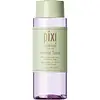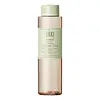What's inside
What's inside
 Key Ingredients
Key Ingredients

 Benefits
Benefits

 Concerns
Concerns

 Ingredients Side-by-side
Ingredients Side-by-side

Water
Skin ConditioningRosmarinus Officinalis Leaf Water
MaskingGlycerin
HumectantPropanediol
SolventPEG-40 Hydrogenated Castor Oil
EmulsifyingMethyl Gluceth-20
HumectantCaprylic/Capric Triglyceride
MaskingPEG-8
HumectantPanthenol
Skin ConditioningMagnesium Ascorbyl Phosphate
AntioxidantSodium Hyaluronate
HumectantLecithin
EmollientPolysorbate 20
EmulsifyingOenothera Biennis Flower Extract
AstringentHibiscus Rosa-Sinensis Flower Extract
HumectantSodium Acrylates Copolymer
Palmitoyl Tripeptide-28
Skin ConditioningHydroxypropyl Cyclodextrin
MaskingRetinol
Skin ConditioningPhenoxyethanol
PreservativeJasminum Officinale Flower/Leaf Extract
MaskingLavandula Angustifolia Flower/Leaf/Stem Extract
MaskingEugenia Caryophyllus Flower Extract
AstringentVitis Vinifera Fruit Extract
Skin ConditioningSodium Citrate
BufferingDisodium EDTA
Citric Acid
BufferingEthylhexylglycerin
Skin ConditioningWater, Rosmarinus Officinalis Leaf Water, Glycerin, Propanediol, PEG-40 Hydrogenated Castor Oil, Methyl Gluceth-20, Caprylic/Capric Triglyceride, PEG-8, Panthenol, Magnesium Ascorbyl Phosphate, Sodium Hyaluronate, Lecithin, Polysorbate 20, Oenothera Biennis Flower Extract, Hibiscus Rosa-Sinensis Flower Extract, Sodium Acrylates Copolymer, Palmitoyl Tripeptide-28, Hydroxypropyl Cyclodextrin, Retinol, Phenoxyethanol, Jasminum Officinale Flower/Leaf Extract, Lavandula Angustifolia Flower/Leaf/Stem Extract, Eugenia Caryophyllus Flower Extract, Vitis Vinifera Fruit Extract, Sodium Citrate, Disodium EDTA, Citric Acid, Ethylhexylglycerin
Water
Skin ConditioningCocos Nucifera Water
MaskingPropanediol
SolventGlycerin
HumectantBetaine
HumectantAcacia Seyal Gum Extract
HumectantCaprylic/Capric Triglyceride
MaskingCamellia Japonica Flower Extract
EmollientSea Salt Extract
Skin ConditioningCamellia Sinensis Leaf Extract
AntimicrobialAcetyl Hexapeptide-8
HumectantCoenochloris Signiensis Extract
Skin ConditioningMagnesium Chloride
Potassium Chloride
Zinc Chloride
AntimicrobialSodium Chloride
MaskingPalmitoyl Tripeptide-37
Skin ConditioningMagnesium Ascorbyl Phosphate
AntioxidantLavandula Angustifolia Flower/Leaf/Stem Extract
MaskingCupressus Sempervirens Leaf/Stem Extract
Skin ConditioningCucumis Melo Cantalupensis Fruit Extract
AstringentRubus Idaeus Fruit Extract
AstringentLeuconostoc/Radish Root Ferment Filtrate
AntimicrobialPyrus Malus Fruit Extract
Skin ConditioningCitrus Aurantium Amara Flower Extract
RefreshingSalvia Officinalis Leaf Extract
CleansingPEG-40 Hydrogenated Castor Oil
EmulsifyingPhenoxyethanol
PreservativeDisodium EDTA
Citrus Aurantium Bergamia Fruit Oil
MaskingSodium Citrate
BufferingCitric Acid
BufferingSodium Benzoate
MaskingPotassium Sorbate
PreservativeEthylhexylglycerin
Skin ConditioningAmyl Cinnamal
PerfumingLinalool
PerfumingWater, Cocos Nucifera Water, Propanediol, Glycerin, Betaine, Acacia Seyal Gum Extract, Caprylic/Capric Triglyceride, Camellia Japonica Flower Extract, Sea Salt Extract, Camellia Sinensis Leaf Extract, Acetyl Hexapeptide-8, Coenochloris Signiensis Extract, Magnesium Chloride, Potassium Chloride, Zinc Chloride, Sodium Chloride, Palmitoyl Tripeptide-37, Magnesium Ascorbyl Phosphate, Lavandula Angustifolia Flower/Leaf/Stem Extract, Cupressus Sempervirens Leaf/Stem Extract, Cucumis Melo Cantalupensis Fruit Extract, Rubus Idaeus Fruit Extract, Leuconostoc/Radish Root Ferment Filtrate, Pyrus Malus Fruit Extract, Citrus Aurantium Amara Flower Extract, Salvia Officinalis Leaf Extract, PEG-40 Hydrogenated Castor Oil, Phenoxyethanol, Disodium EDTA, Citrus Aurantium Bergamia Fruit Oil, Sodium Citrate, Citric Acid, Sodium Benzoate, Potassium Sorbate, Ethylhexylglycerin, Amyl Cinnamal, Linalool
 Reviews
Reviews

Alternatives
Ingredients Explained
These ingredients are found in both products.
Ingredients higher up in an ingredient list are typically present in a larger amount.
This ingredient is an emollient, solvent, and texture enhancer. It is considered a skin-softener by helping the skin prevent moisture loss.
It helps thicken a product's formula and makes it easier to spread by dissolving clumping compounds.
Caprylic Triglyceride is made by combining glycerin with coconut oil, forming a clear liquid.
While there is an assumption Caprylic Triglyceride can clog pores due to it being derived from coconut oil, there is no research supporting this.
Learn more about Caprylic/Capric TriglycerideCitric Acid is an alpha hydroxy acid (AHA) naturally found in citrus fruits like oranges, lemons, and limes.
Like other AHAs, citric acid can exfoliate skin by breaking down the bonds that hold dead skin cells together. This helps reveal smoother and brighter skin underneath.
However, this exfoliating effect only happens at high concentrations (20%) which can be hard to find in cosmetic products.
Due to this, citric acid is usually included in small amounts as a pH adjuster. This helps keep products slightly more acidic and compatible with skin's natural pH.
In skincare formulas, citric acid can:
While it can provide some skin benefits, research shows lactic acid and glycolic acid are generally more effective and less irritating exfoliants.
Most citric acid used in skincare today is made by fermenting sugars (usually from molasses). This synthetic version is identical to the natural citrus form but easier to stabilize and use in formulations.
Read more about some other popular AHA's here:
Learn more about Citric AcidDisodium EDTA plays a role in making products more stable by aiding other preservatives.
It is a chelating agent, meaning it neutralizes metal ions that may be found in a product.
Disodium EDTA is a salt of edetic acid and is found to be safe in cosmetic ingredients.
Learn more about Disodium EDTAEthylhexylglycerin (we can't pronounce this either) is commonly used as a preservative and skin softener. It is derived from glyceryl.
You might see Ethylhexylglycerin often paired with other preservatives such as phenoxyethanol. Ethylhexylglycerin has been found to increase the effectiveness of these other preservatives.
Glycerin is already naturally found in your skin. It helps moisturize and protect your skin.
A study from 2016 found glycerin to be more effective as a humectant than AHAs and hyaluronic acid.
As a humectant, it helps the skin stay hydrated by pulling moisture to your skin. The low molecular weight of glycerin allows it to pull moisture into the deeper layers of your skin.
Hydrated skin improves your skin barrier; Your skin barrier helps protect against irritants and bacteria.
Glycerin has also been found to have antimicrobial and antiviral properties. Due to these properties, glycerin is often used in wound and burn treatments.
In cosmetics, glycerin is usually derived from plants such as soybean or palm. However, it can also be sourced from animals, such as tallow or animal fat.
This ingredient is organic, colorless, odorless, and non-toxic.
Glycerin is the name for this ingredient in American English. British English uses Glycerol/Glycerine.
Learn more about GlycerinThis ingredient comes from the lavender plant. It is used to add a scent or mask an unpleasant one in products.
Lavender contains linalool and linalyl acetate.
When exposed to air, these two compounds become strong allergens. This ingredient exhibits cytotoxicity at low concentrations; amounts of 0.25% have been shown to damage skin cells.
Learn more about Lavandula Angustifolia Flower/Leaf/Stem ExtractMagnesium Ascorbyl Phosphate (MAP) is a form of Vitamin C and is an antioxidant. It can help to reduce redness, improve skin texture, reduce the effects of aging, reduce the visibility of dark spots, and brighten skin.
MAP is created by combining ascorbic acid with magnesium salt. While MAP more gentle on the skin than ascorbic acid, it is thought to be less easily-absorbed into the skin.
Due to MAP's stability up to a pH level of 7, it is more stable to air and sunlight exposure than ascorbic acid. The best pH range for MAP is between 5 and 6.
Like other forms of Vitamin C, MAP has been shown to help reduce hyperpigmentation and simulate collagen production.
As an antioxidant, it helps protect your skin against the signs of aging.
Learn more about Magnesium Ascorbyl PhosphatePeg-40 Hydrogenated Castor Oil is derived from castor oil and polyethylene glycol (PEG). It is used as a emollient and emulsifier.
As an emulsifier, it helps prevent ingredients from separating. It also helps make the other ingredients more soluble; it is often used to solubilize fragrances. This increases spreadability and elongates shelf life in a product.
Emollients help soothe and soften the skin. They do this by creating a protective film on your skin. This barrier helps trap moisture and keeps your skin hydrated. Emollients may be effective at treating dry or itchy skin.
This ingredient may or may not be vegan, depending on the source.
Peg-40 Hydrogenated Castor Oil may not be fungal-acne safe. We recommend speaking with a professional if you have any questions or concerns.
Learn more about PEG-40 Hydrogenated Castor OilPhenoxyethanol is a preservative that has germicide, antimicrobial, and aromatic properties. Studies show that phenoxyethanol can prevent microbial growth. By itself, it has a scent that is similar to that of a rose.
It's often used in formulations along with Caprylyl Glycol to preserve the shelf life of products.
Propanediol is an all-star ingredient. It softens, hydrates, and smooths the skin.
It’s often used to:
Propanediol is not likely to cause sensitivity and considered safe to use. It is derived from corn or petroleum with a clear color and no scent.
Learn more about PropanediolSodium Citrate is the sodium salts of citric acid. In skincare, it is used to alter pH levels and acts as a preservative.
Its main functions are to maintain the pH of a product and neutralize metal ions.
The acidity of our skin is maintained by our glands and skin biome; normal pH level of skin is slightly acidic (~4.75-5.5).
Being slightly acidic allows our skin to create an "acid mantle". This acid mantle is a thin barrier that protects our skin from bacteria and contaminants.
Learn more about Sodium CitrateWater. It's the most common cosmetic ingredient of all. You'll usually see it at the top of ingredient lists, meaning that it makes up the largest part of the product.
So why is it so popular? Water most often acts as a solvent - this means that it helps dissolve other ingredients into the formulation.
You'll also recognize water as that liquid we all need to stay alive. If you see this, drink a glass of water. Stay hydrated!
Learn more about Water